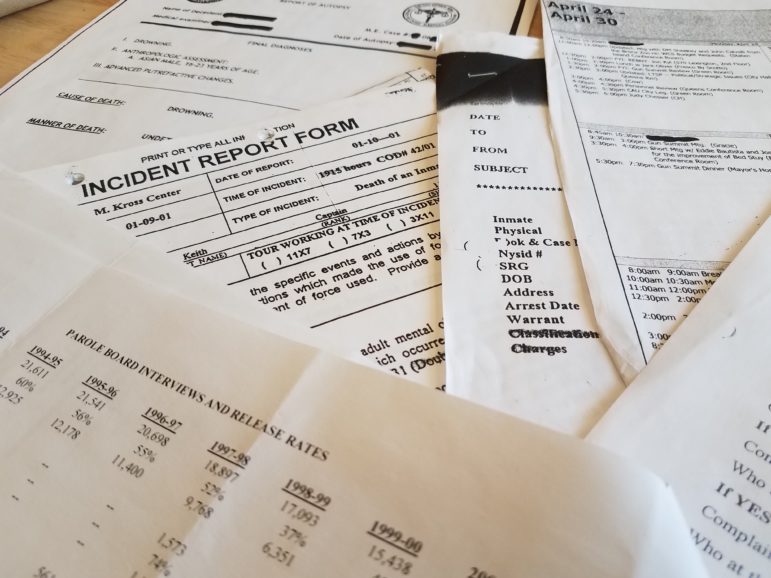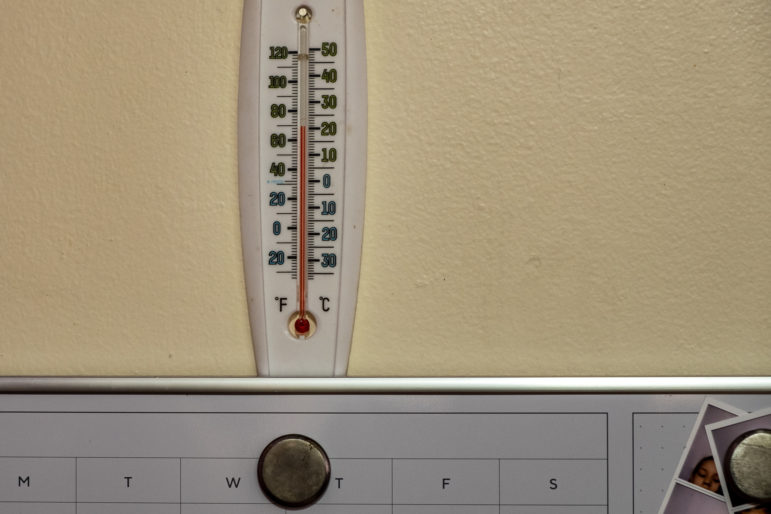
City Limits
A report released Wednesday details ways the MTA could reform its FOIL process.
The MTA “lags badly behind” other government agencies when it comes to responding to Freedom of Information Law requests – closing cases without always providing full records, supplying those records in less accessible and hard-to-sort formats, and handling FOIL queries inconsistently among its many separate agencies, according to a report released Wednesday by a government watchdog group.
The critiques were included in “Open MTA,” a more than 170-page report from the good-government group Reinvent Albany, which details 50 reforms the MTA and Gov. Andrew Cuomo should undertake to make the transportation authority more transparent. This includes a push for the MTA to overhaul its “dysfunctional and fragmented” FOIL process, which would help restore the agency’s shattered credibility, according to the group.
“One of the easiest ways for the MTA to show that it is serious about improving transparency is to bring its Freedom of Information Law (FOIL) process into the 21st century,” the report reads, saying the MTA’s spotty FOIL performance “speaks both to internal management and external transparency,” at the agency.
The criticism comes just weeks after the MTA board appointed a new chairman and CEO, Pat Foye, in the middle of the night – a move that rankled good government groups, including Reinvent Albany. For his part, Foye has pledged to make the authority more open to public scrutiny, something he reiterated in a statement Wednesday.
“The MTA needs to do a better job of sharing data in a useful format and responding to requests for information, and improving agency transparency will be a keystone priority for me,” he said, adding that the MTA has improved its FOIL portal and is “committed to reducing the broken process that causes such long delays for sharing the requested documents.”
The MTA isn’t the only New York entity that’s been criticized for lackluster FOIL compliance: A survey City Limits conducted earlier this spring asked the city’s journalists to report their own experiences with FOIL, with several complaining of denied requests and long delays for seemingly basic information.
The Reinvent Albany report details findings from another study the group conducted last year in which it asked for 2017 FOIL logs from the MTA’s eight agencies, including New York City Transit, Metro North and the Long Island Railroad.
None of the agencies provided the requested documents within 20 business days, as FOIL requires – instead, Reinvent Albany had to file administrative appeals to all eight agencies, and it took each between 52 to 64 business days to supply the records “despite the simple nature of the request,” according to the report. Record requests were also handled inconsistently among the different MTA agencies, each with “varying amounts of information and different formats, further demonstrating the MTA’s fragmented approach to FOIL,” the report reads.
Reinvent Albany also analyzed data on the nearly 9,000 FOIL requests the MTA received in 2017, finding that while more than half – 61 percent – of requests that year were “closed” within the 20-day timeline, the average wait was 32 business days, and 8 percent of cases took more than 100 business days. The report also notes that when MTA deems requests “closed,” it doesn’t necessarily mean the requested records were provided, as “closures may include requests that were denied, or partially fulfilled,” according to the report.
The watchdog group suggests a number of recommendations for how the MTA can improve its FOIL process, including taking a page from the Port Authority of NY/NJ, which makes the records requests it receives publicly available via a searchable website – a system Reinvent Albany dubbed as “light years ahead of” the MTA’s.
It also calls for the MTA to create a separate online portal where the public can privately request MTA Police incident reports, similar to the one the Department of Motor Vehicles has that allows users to request copies of crash reports. MTA Police incident reports make up two-thirds of the records requests the authority receives, and making those available this way “could save the MTA significant time processing other FOIL requests,” the report says.
Reinvent Albany also wants the MTA to publish more of its data via spreadsheets – instead of PDF forms – since those are easier to search and sort.
“In 2019, the MTA is still a long way from putting important information online and in accessible formats,” the report says. “For journalists, researchers, and watchdogs that seek to hold the MTA accountable, that means FOIL is the only way to get certain records.”
You can read the “Open MTA” report in full here.








